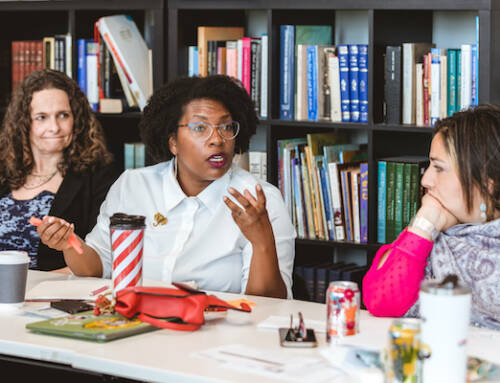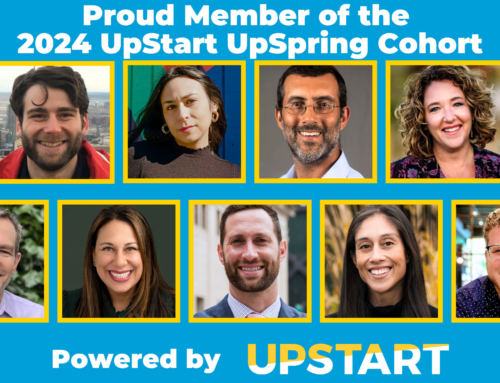In order to genuinely learn about the needs and experiences of others, we must put aside our own assumptions, agendas, and even passions. In order to truly listen to the other, we must be willing to admit that perhaps we do not know the things about which we are so certain, so confident.
The Talmud, in tractate Megillah 7b states the following: “Rava said: A person is obligated to get drunk on Purim so that he cannot distinguish between ‘cursed is Haman’ and ‘blessed is Mordecai.'” I’ve never understood this tradition to drink on Purim. Yes, Purim is our mardi-gras, the Jewish day of letting go. The Megillah is full of references to drinking and to excess. But to not be able to distinguish between Haman and Mordecai? It seems absurd! That’s like not knowing our left from our right, our good from our bad, ourselves from another. It’s impossible! And, even more wild, is how the story continues:
“Rabbah and Rabbi Zeira had the Purim feast together, and they got drunk. Rabbah got up and killed Rabbi Zeira. The next day, he prayed for mercy and Rabbi Zeira became alive again. The next year, [Rabbah] said to [Rabbi Zeira] – come, let us have the Purim feast together! [Rabbi Zeira] responded – it’s not every day that a miracle occurs…”
We could read this story as a type of “Surgeon General’s Warning” about drinking too much – it can be dangerous to drink, so, don’t go too far, and don’t depend on a miracle to save you from your drunken behavior. But, of course, it is possible to read this story symbolically, as a metaphor for both the benefits, and potential dangers, involved in “not distinguishing.”
Professor Merrick Furst recently spoke at UpStart about the misconceptions people have about the cycles of entrepreneurs. We tend to believe that the entrepreneur comes up with an idea, often in a flash of inspiration, shares and builds support for that idea, begins to deliver on it, with either programs or products in a pilot phase, and then launches the organization. But, Professor Furst argued, that is rarely what happens. Instead, the entrepreneur comes up with an idea that is actually just a hunch, and often an illusion, deeply informed by her own experience, and not validated by any extensive external reality check. In talking about her idea with others, as excited and passionate and convinced that she may be, she is essentially just selling her illusion, creating a group delusion. The pilot phase is often a money-pit, because, more often than not, nothing happens. The idea fizzles, or stays extremely small, or proves to be irrelevant.
Now, to me, this smacks of cynicism. As someone who has spent years working with starry-eyed entrepreneurs, I’ve become enticed and inspired by their optimism and ability to dream. But it also smacks hard of reality. Most of our projects and organizations, big and small, are being designed and developed by small professional teams, without a genuine, deep understanding of the needs of the community we are serving. Sometimes we’re lucky, and we hit on something. But, according to Professor Furst, we need to change the way in which we operate, the way we design and test our ideas. And the first step of this process? The equivalent of being drunk enough to not know the difference between Haman and Mordecai.
In order to genuinely learn about the needs and experiences of others, we must put aside our own assumptions, agendas, and even passions. In order to truly listen to the other, we must be willing to admit that perhaps we do not know the things about which we are so certain, so confident. We must be willing to let go of the beliefs we adhere to most deeply, the structures and contours that govern our lives, and be open to the possibility that things function differently from what we had thought. This, I believe, is the metaphor of “not distinguishing between cursed is Haman and blessed is Mordecai.” Admitting that the way we thought the world worked might be wrong. That the distinctions we created might need to be reconfigured. Professor Furst argues that this state of mind is critical in developing any new initiative. Because only then do we become truly able to talk with the individuals we want to serve and learn about them, about their perceptions and needs, their attributes and psychological traits and values. This is only the first phase of the process that breeds stronger initiatives, but it is invaluable. The process evolves when we listen deeply after having put aside our own opinions, and then begin to experiment, quickly, cheaply, with what we think we’ve heard, and test how we might help.
There is something truly terrifying about working like this, living like this. The story in the Talmud about Rabbah getting so drunk that he kills Rabbi Zeira is a metaphor for the fear we have regarding living in this way. We need to make distinctions and create meaning, in order to live relevant lives. Without those distinctions, we devolve into chaos. When we lose the ability to distinguish, we become dangerous, and lose our grip on the world, on what is right, on ourselves. We feel this very strongly in the professional Jewish community. We believe that it is our responsibility to create the structures and opportunities to keep Judaism vibrant and relevant in the world. It is terrifying to let go of that, to shut off the internal voices that govern our daily professional behavior, to entertain the possibility that we’ve gotten it all wrong. Because then who are we? What are we?
Purim is a communal reminder that in order to grow, it is necessary to loosen our distinctions, our confidence, our importance, our clarity. The danger is what happens in that moment. For it is a moment in which, in a flash, we could lose it all. But it is also a moment in which, with discipline and courage, we can truly listen. Truly hear. Shake our understanding of the world, and really learn the people, their pain, their passions, and their dreams. Embrace the humility of not knowing, and become intoxicated with the perspective of the other. And then begin the real work of returning to our original constructs, visions, missions, structures, organizations, and muster the courage to build, rebuild, and start, again, anew.
Originially published on eJewish Philanthropy
Our purpose is to enable entrepreneurs to bring bold Jewish ideas to light. We help them reach Up to people in new ways that are meaningful, more inclusive, and create a brighter future for our Jewish community and the world we share.




